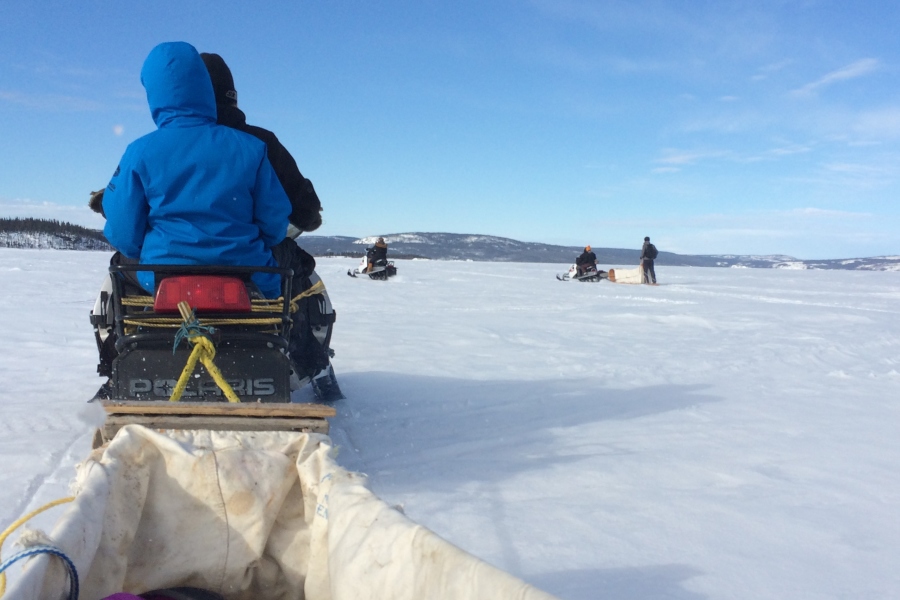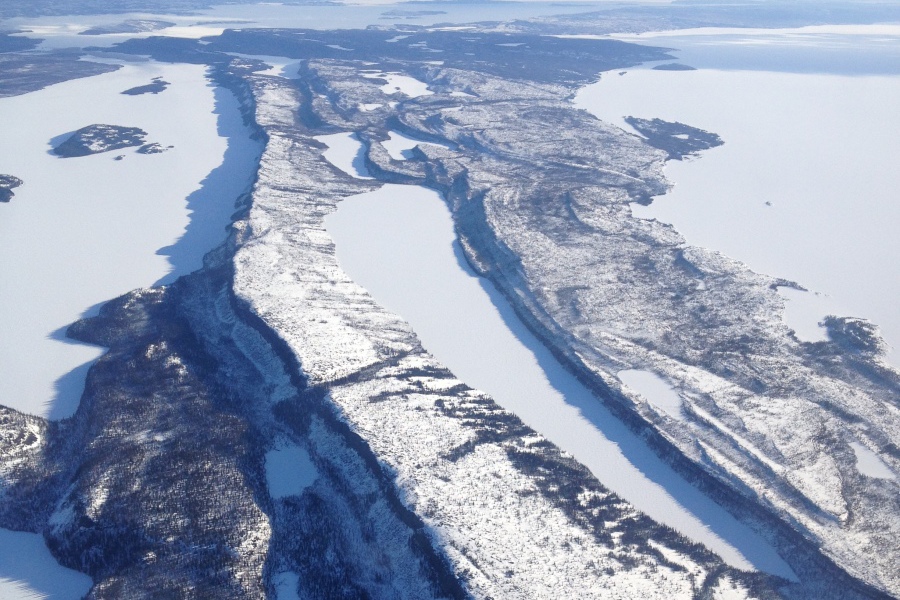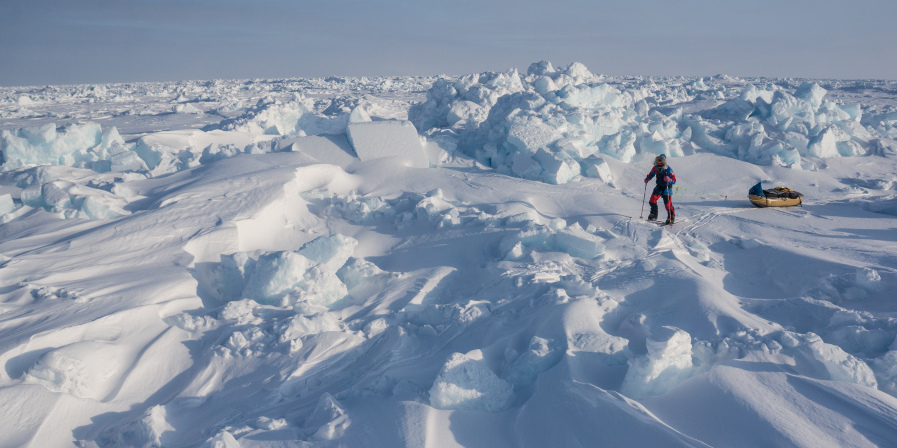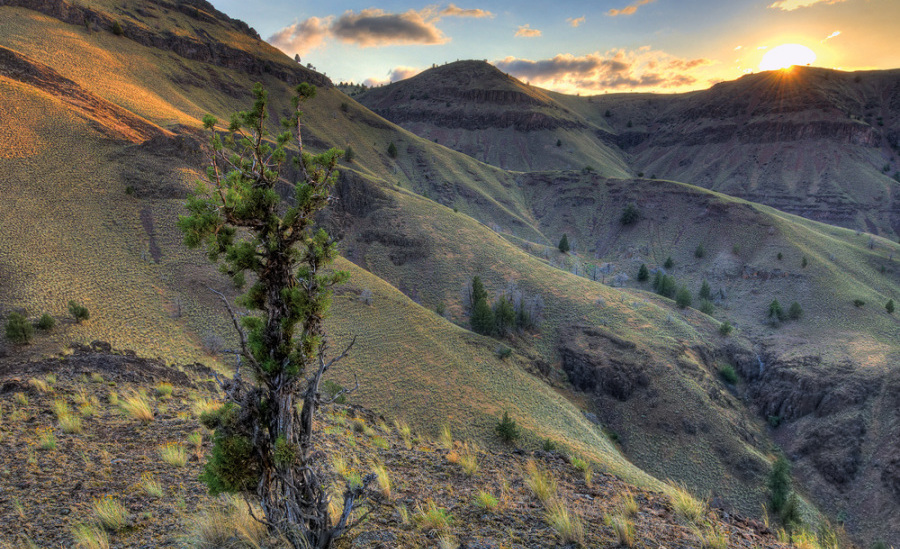Erica Janes is the Conservation Outreach Coordinator for Canadian Parks and Wilderness Society – Northwest Territories (CPAWS- NWT). The Conservation Alliance awarded CPAWS-NWT a $30,000 grant in October 2014 for their campaign to protect 7.4 million acres in the proposed Thaidene Nene Protected Area around and beyond the East Arm of Great Slave Lake in the Northwest Territories.
In Canada’s Northwest Territories, at the East Arm of Great Slave Lake, the water is so pure you can dip in your cup and drink, countless rivers flow, and small mainly coniferous trees of the boreal forest give way to the tundra. The people of the Lutsel K’e Dene First Nation, in partnership with CPAWS and others, are in an exciting phase of establishing Thaidene Nene, a new protected area expected to cover millions of acres.
Thanks to the support of the Conservation Alliance and others, the story of the relationship between people and the land and waters of Thaidene Nene is now being heard by decision-makers and the public in Canada’s capital in Ottawa, and in the territory’s capital in Yellowknife.
We are excited to share that Thaidene Nene is now moving quickly toward becoming Canada’s Northwest Territories’ newest and most innovative protected area. CPAWS has been working with the Lutsel K’e Dene First Nation (LKDFN) since 2010 to build public awareness and support for establishing Thaidene Nene.
Thaidene Nene translates from the local Denesoline language as the ‘Land of the Ancestors’. It is the heart of the homeland and the sacred place of the Lutsel K’e Dene people, and it is where their ancestors laid down the sacred, ethical and practical foundations of their way of life. This has always been an important area for the Lutsel K’e Dene, and this is why they are looking to a future that not only protects land, water, and wildlife, but secures their way of life for generations to come. Protecting Thaidene Nene will also diversify the local economy and create sustainable livelihoods and new tourism opportunities for the community and the region.

The vision for protecting Thaidene Nene is compelling: it’s not just about the park. Thaidene Nene will help build a sustainable future for the Lutsel K’e Dene – keeping their culture strong and building a sustainable local economy – and it will also protect the heritage of all northerners in Canada. Hundreds of visitors, mainly from Yellowknife and other points in the NWT already visit the East Arm of Great Slave Lake each summer, drawn by the beauty of the area, the huge fish that populate the lake, and the chance of glimpsing caribou and other wildlife, including birds of prey and muskoxen.
In mid-April, CPAWS representatives from across Canada, many of whom who had never been “north of 60” before, had the chance to experience Lutsel K’e hospitality for a day. No roads reach this part of Great Slave Lake or its surroundings; we flew in the roughly 125 miles from Yellowknife. The LKDFN is gearing up for their role as stewards and hosts in what will soon be a park, and we were all given a glimpse of what a local conservation economy could look like: connecting with community members, listening to stories about the land, sharing food, participating in the festivities of the annual Spring Carnival, travelling on the frozen lake by snowmachine to check fishnets, visiting nearby historic sites, and soaking in the incredible beauty of a spring day on the East Arm. No one was left less than inspired – by the stunning landscape, the people and their relationship with their homeland!
We expect to be able to share more news about establishing Thaidene Nene in the near future. In the meantime, you can check out Thaidene Nene virtually at www.landoftheancestors.ca. While you’re there, please sign the petition in support of establishing Thaidene Nene. Stay tuned for news about this extraordinary conservation opportunity in the Northwest Territories.




